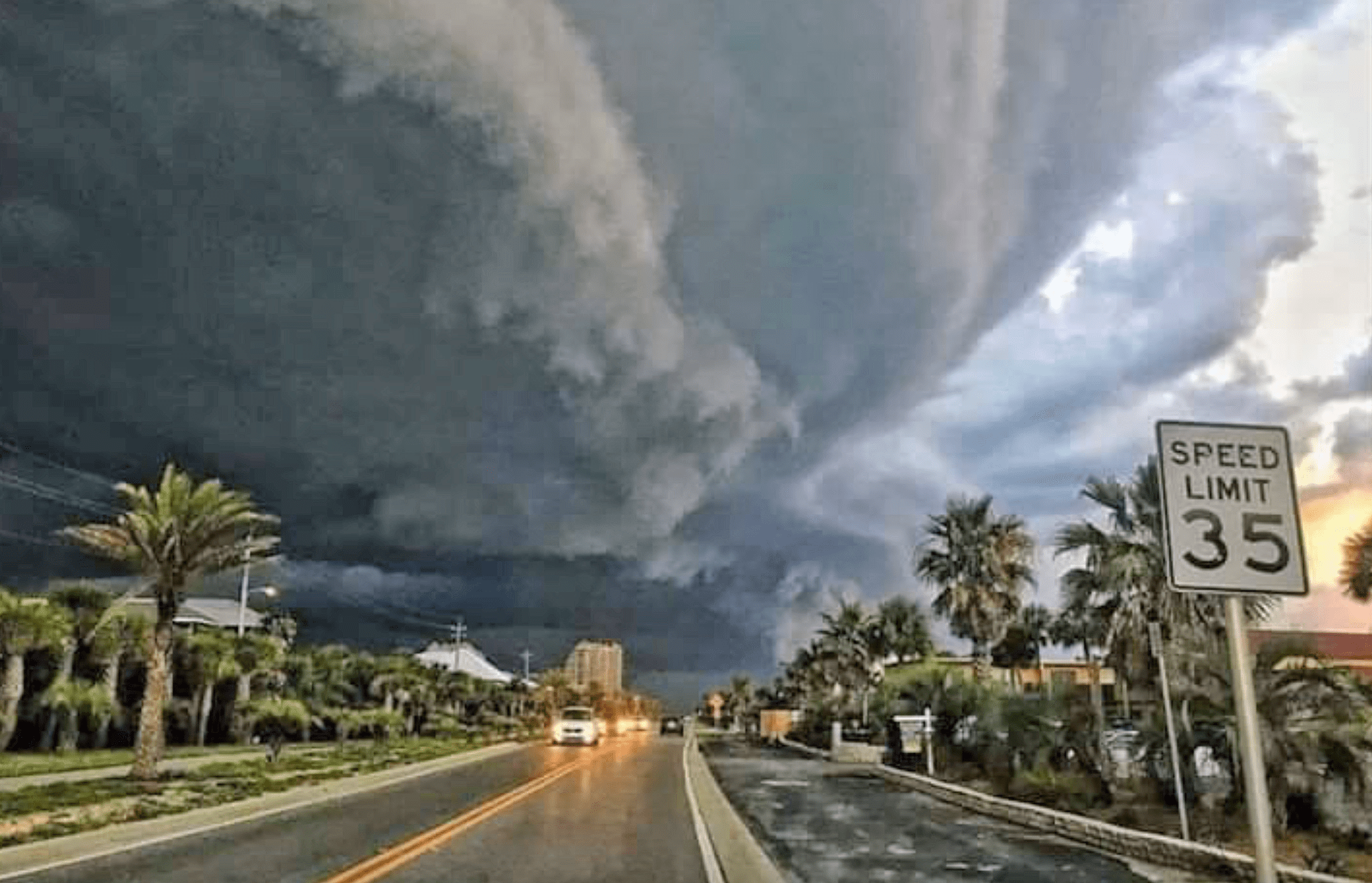Over the past few weeks, the news has been flooded with images of hurricane disaster: endless traffic jams full of evacuees, communities destroyed by deadly winds, and residents struggling to access the resources they need to survive while multiple feet of water stand in the streets. But how has car dependency altered the course of these unthinkable events — and how can addressing it make us more resilient to whatever climate change throws at us next?
On today’s episode of The Brake, we’re sitting down with two experts from the Urban Institute, Sara McTarnaghan and Will Curran-Groom, who are thinking deeply about the intersection between disaster planning and everyday urban planning, and how making our neighborhoods less centered on the automobile can help everyone when the big storm comes — which, as we’ve been reminded this week, can happen just about anywhere.
And along the way, we get into hard questions about how to evacuate people who don’t have cars, how ending exclusionary zoning now can pay dividends when communities set up resource hubs after a disaster, and so much more.
Note: this episode was recorded after Hurricane Helene, but before Hurricane Milton. If you are looking for ways to support the victims, here are a few resources.
The following excerpt has been edited for clarity and length.
Streetsblog: What were your initial reactions to what happened during Hurricane Helene, as experts in this field and folks who are talking about disaster preparedness all the time? How are you reacting to what's continuing to happen to those communities in the southeast that are being so impacted?
Sara McTarnaghan: Last week's hurricane is both completely surprising and not surprising to those of us that work in the disaster space. There's already rapid attribution science that points to the connection between the severity and scale of the hurricane and climate change. We hear that sentence forever and forever: storms are getting more severe, more frequent. That's what was on display.
And the challenging piece for all of us working in this space now — and for the communities as they're experiencing this — is just the sheer scale of the event, and the range of communities that are repeat loss communities. [There are so many] communities that have experienced similar impacts, certainly in Florida, but in other parts of the southeast, too.
Then there are communities like those in western North Carolina that really haven't been tested in this way before. Some of them don't consider themselves at risk of hurricanes; they think that's more of a coastal phenomenon. It's a wake-up call in terms of community preparedness. This is not just happening on the coast or in places we think of as most vulnerable. It's really a national challenge.
Will Curran-Groome: Some of the things that we're thinking about in the context of this disaster are not just opportunities for preparedness, but recovery for the whole population — and how those impacts might differ among different populations. Because particular people and communities are going to be disproportionately impacted and have different sorts of needs, both pre- and post-event.
When we're looking at transportation access — and that's something that's always on our radar — we're seeing that there are about 80,000 people [in the] western North Carolina region who don't have access to a vehicle. And there's some really sobering intersections with disability and income and how all of those factors are coinciding to potentially put particular households at really, really severe risk of experiencing the worst burdens and impacts from storms like this. [We're] also highlighting some of the important thinking about how to best support those communities to recover after the event — because that will need to happen in the state and nationally, going forward.
Streetsblog: Let's talk about evacuation before the storm. How does car dependency shape or complicate efforts to get people out, especially if they can't or don't drive?
McTarnaghan: I think the intersection between evacuation, transportation, and just infrastructure is so important. It's something that we've been doing a bit of work on, not in the North Carolina region, but actually in conversation with folks in southwest Florida. They're thinking about the spatial development pattern of their communities — sprawling development patterns, very high car dependency — and how mismatched that is with the reality of repeat disasters.
We're also thinking a lot about what is feasible for communities in terms of evacuation. What alternatives are there to the image that we all have of people taking their personal, private vehicles [to evacuate] — of them having both the vehicle to begin with, and then the means, in terms of gas money, etc, to get out? And what are more community-based evacuation approaches? What about decentralized safe spaces and emergency hubs that people can go to during the storm?
And so I think learning from communities that have experienced this before, like southwest Florida, may help communities more inland. It's not just about taking that evacuation warning really seriously, and building social trust among people to understand and have access to this information, but then to have multiple options to actually do it.
So often we see media that criticizes people for not heeding evacuation orders. But what do their transportation options look like? There are they mostly seniors? What disabilities do they have?
We're not the experts on Helene, but what I would emphasize is there's just so much more work to be done, pre-disaster, for people to understand their options and have their options be grounded in the reality of their vulnerability at a community and a household level. And then we need to have the social trust and trusted messengers so when they people get those messages, they listen.






